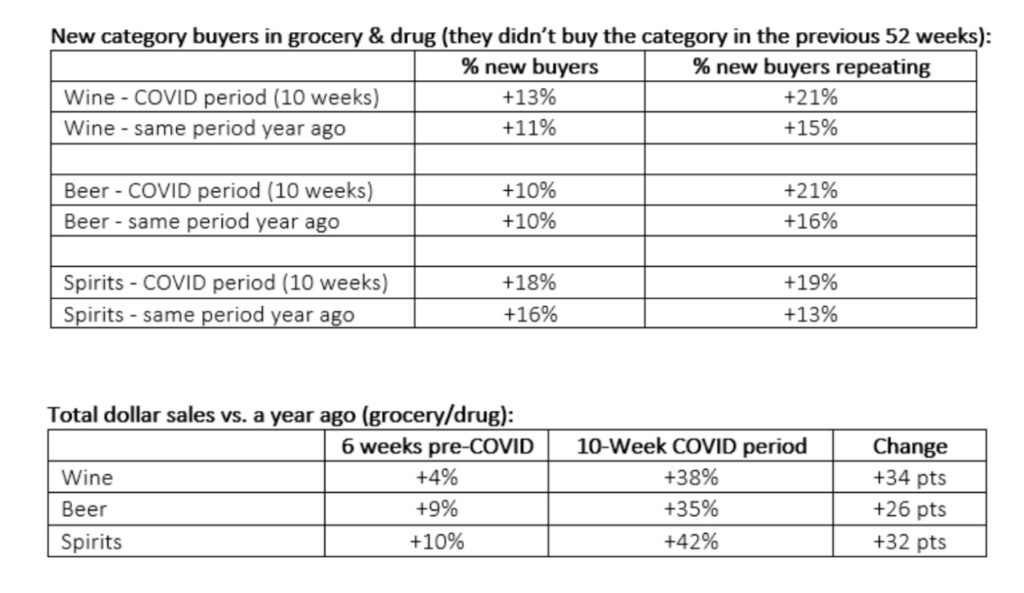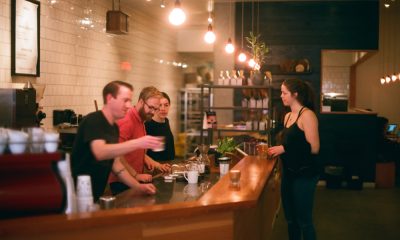Business
Wine industry news: sales explode during COVID-19 & investors are looking at Palate Club and how it is thriving despite the COVID-19 pandemic
The coronavirus has significantly affected the wine industry all over the world. Vineyards and wineries find themselves struggling to operate and turn a profit. That being said, consumer behavior has shifted, with most of them going online. Wine delivery service Palate Club is one of the businesses that have been flourishing under these circumstances.

Per the State of the U.S. Wine Industry 2020 report by the Silicon Valley Wine (SVB) Wine Division, almost a quarter of the industry, after surveyed, responded that 2019 was the best performing year in recent history. Aside from a good economic outlook, the generation of Boomers and Gen Xers increased their spending on bottles priced $9 and above, making it a record year for sales. Nevertheless, SVB predicted tough times ahead, and cited the need for the industry to “adapt and change its focus and direction.” That will prove true months into 2020, as the world grappled with COVID-19. And it would seem that Palate Club, a premium wine subscription service, is ahead of the curve.
COVID-19 is the invisible enemy that nations are currently fighting today. The pandemic has impacted economies, and four of the largest wine producers in the world, namely, France, Spain, Italy, and the U.S. are some of the hardest-hit countries. France accounts for 16% of global wine production, with export revenues amounting to €7.6 billion annually, or around seven to eight million bottles. Meanwhile, the U.S. makes about 800 gallons a year, with the state of California producing 84% of the country’s wine and having around 4,391 wineries in total.
Increased wine sales thanks to technology
A recent report revealed that wine sales climbed by 38% during the lockdown. The number of buyers also increased by 16%, with 46% of them making a purchase more than once during a 10-week period. In each of those wine shopping instances, 45% comprised of two or more bottles of wine. These repeat purchases also included new buyers. And, compared to other alcoholic beverages, wine was more popular than beer or other spirits.

Stephanie Gallo, CMO of E. & J. Gallo Winery, points out how consumers’ habits have shifted during the pandemic: “During times of crisis, new behaviors and habits emerge for some consumers while others return to the familiar. The rise of virtual observances—happy hours, baby showers, birthdays and even weddings—means consumers are using technology in new ways while enjoying wine and spirits as a part of their connections.”
Indeed, for wine clubs like Palate Club, technology has played a huge role in keeping the momentum for wine sales. Its online wine shop is filled with artisanal wines sourced from the best vineyards in the U.S. as well as all over the world, curated by master sommeliers Jennifer Estevez and Aubrey Terrazas. They are also guided by Paris-based wine experts Guillaume Puzo and Aymeric De Clouet.
Moreover, the company also has a namesake app that investors are hailing as “Netflix for wine.” Created by a team of elite app developers, mathematicians, neurologists, and sommeliers, at the app’s core is an algorithm that matches customers with wines that would suit their taste based on their ratings. The more they rate wines, the better and more personalized the recommendations are. Palate Club uses data science to calculate one’s unique palate profile, and over time the app learns more about the customer’s affinity with acidity, tannins, and other wine features.
Improving the digital experience
Direct-to-consumer shipping is what powers a lot of businesses now, in an era of social distancing and shelter-in-place guidelines in most states in America. From grocery shopping to retail to other essential needs, the safest thing to do today is to buy online, and wine is one of those products with a mature target market, who has the desire and purchasing power that is seen to endure the pandemic. But not without radical changes—the San Francisco Wine Institute disclosed that the whole wine industry is looking at a $6 billion loss this year, despite a boost in sales.
“We want to upgrade the broken system for buying wine, eradicate snobbery, and make it easy for people to find and enjoy their wine without question,” says Palate Club founder Nicolas Mendiharat, who believes that adapting to the changing times is crucial if one is to survive the current wine industry landscape. With California wineries potentially being deprived of 24 million tourists and an income of almost $58 billion, as well as affecting the jobs of about 300,000 people, the devastating effect of COVID-19 cannot be understated.
With most wine bars and tasting rooms still closed to the public, winemakers are faced with an unfortunate situation. UC Davis agricultural economist Daniel Sumner is mindful of the challenges that lie ahead: “We don’t know how bad the recession will be or how long it will be, but it looks like it will continue for a while. We may be a ways away from a wave of bankruptcies, but there will be churn in the industry.”
For Mendiharat and his team, the answer lies with using artificial intelligence to revitalize the wine industry. Innovation and creativity are needed to stand out. “The wine club model thrives because of its convenience, purchasing simplicity and curation,” he says. “But it needed a new experience tackling the main problem the customer is facing: good value for your own personal taste. This is why we built Palate Club.”
This is why apart from its wine store and wine app, Palate Club also offers a blind wine tasting kit which can be shipped to your doorstep. You can consume it by yourself, though the company recommends enjoying the authentic and bias-free tasting event among friends during a virtual hangout. “At our end, we also believe a key trend is for a different and better experience, the social and fun aspect of wine, and sharing with friends,” says Mendiharat. “All of these seem to have been forgotten in wine brand marketing.”
Investors are focused on companies who can adapt
Jeff Dubiel, CMO of The Wine Group, observes that as customers’ actions change, so must the businesses who serve them: “We have seen shifts in consumer behavior where larger indulgences like vacations are being replaced with small moments of joy and reward, such as a nice glass of wine at the end of the day…The way consumers interact, shop and spend their time has morphed into a more digital experience, so our ability to quickly adjust our engagement during the pandemic has been important.”
As the pandemic continues to test everyone, it is clear that those who cannot adjust to these hard times will fall behind. Being able to adapt to the new normal is an indispensable competency to have, and the team behind Palate Club is passionate about reshaping a customer’s experience when it comes to wine.
This is a critical point in history where businesses will be tested, and investors have their eyes on those who can come out of this crisis, perhaps bearing economic wounds but definitely stronger.
—
(Featured image by Dirk Wohlrabe via Pixabay)
DISCLAIMER: This article was written by a third party contributor and does not reflect the opinion of Born2Invest, its management, staff or its associates. Please review our disclaimer for more information.
This article may include forward-looking statements. These forward-looking statements generally are identified by the words “believe,” “project,” “estimate,” “become,” “plan,” “will,” and similar expressions. These forward-looking statements involve known and unknown risks as well as uncertainties, including those discussed in the following cautionary statements and elsewhere in this article and on this site. Although the Company may believe that its expectations are based on reasonable assumptions, the actual results that the Company may achieve may differ materially from any forward-looking statements, which reflect the opinions of the management of the Company only as of the date hereof. Additionally, please make sure to read these important disclosures.

-

 Fintech7 days ago
Fintech7 days agoSwissHacks 2026 to Launch Inaugural Swiss FinTech Week in Zurich
-

 Impact Investing2 weeks ago
Impact Investing2 weeks agoClimate Losses Drive New Risk Training in Agriculture Led by Cineas and Asnacodi Italia
-

 Cannabis2 days ago
Cannabis2 days agoColombia Moves to Finalize Medicinal Cannabis Regulations by March
-

 Crowdfunding1 week ago
Crowdfunding1 week agoReal Estate Crowdfunding in Mexico: High Returns, Heavy Regulation, and Tax Inequality

























